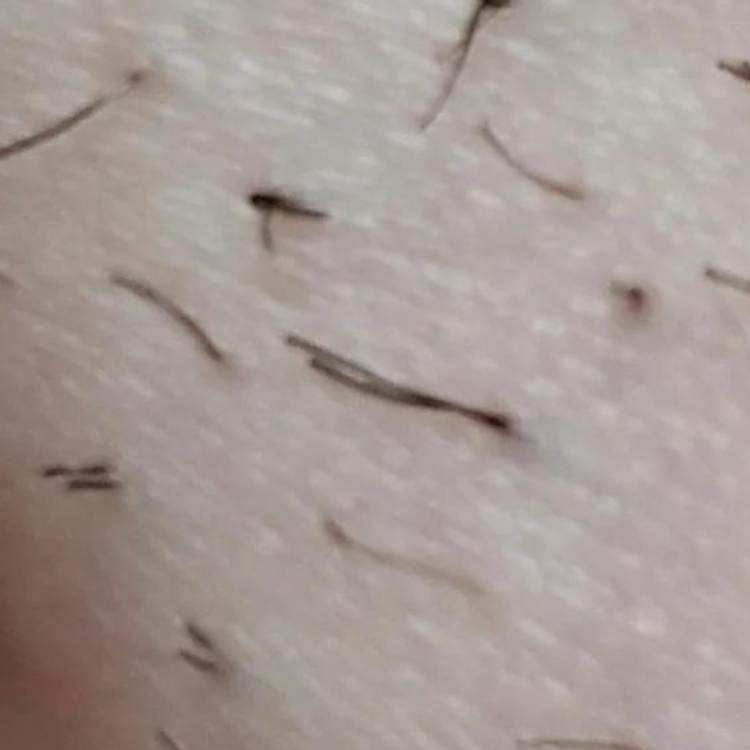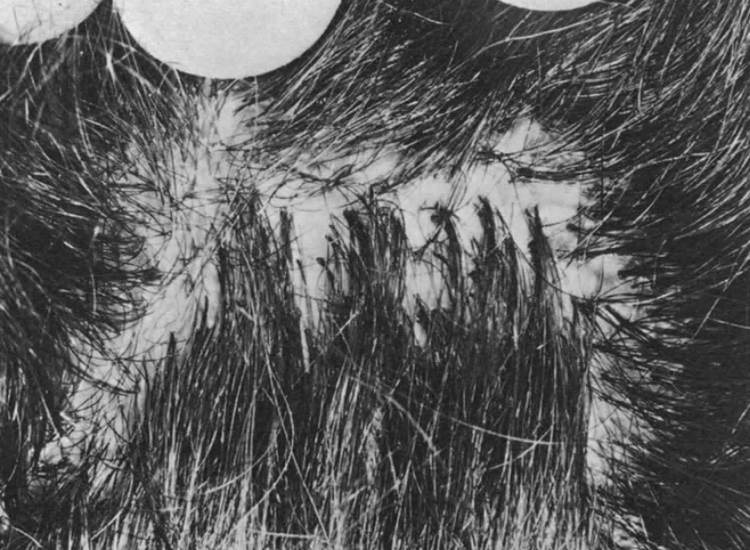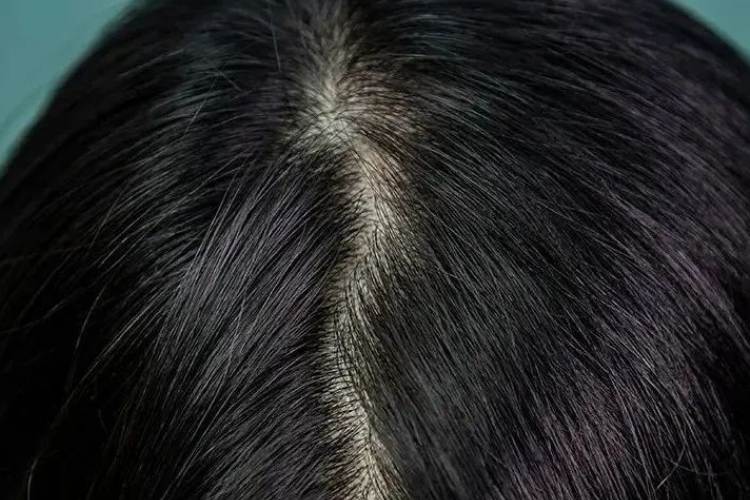Hypertrichosis and hirsutism are some of the hair growth disorders encountered normally. However, have you noticed that your growth patterns do not resemble excess hair growth?
Rather it is something else. If multiple hairs sprouting from a single follicle is not excessive hair growth, what is it? Also, if you find yourself asking questions like is something dangerous? Can it harm your skin?
Are there more people with the same disorder? And how can you get rid of it? Well, take a deep breath and do not worry much. It could be a rare disorder of the hair follicles called Pilli Multigemini.
So, today let us know all about it here.
Table of Contents:
- Part 1: What is Pili Multigemini?
- Part 2: Causes and Risk Factors of Pili Multigemini
- Part 3: How to Get Rid of Pili Multigemini
- Part 4: FAQs
Part 1: What is Pili Multigemini?
First of all, you should know what exactly is pili multigemini for you to determine if you have this condition.
Definition
The literal meaning of Pili is “hair” and Gemini is “twins”. So, in literal terms, Pili Multigemini is “hair with several twins”. If we elaborate this term in simpler meanings, pili multigemini is defined as a single hair with two, three, four, or even more branches.
So, it is multiple hairs in one follicle. Also, it resembles a tree with a single trunk and multiple branches.
Signs and Symptoms
The first thing you notice about pili multigemini is several hair strands coming out of a single hair follicle. On the surface of the skin, you only see the divided parts of the hair rather than the individual roots.
It can be seen on the scalp of the kids and the beard of men. Moreover, it can occur in other parts of the body and women as well. Therefore, if you notice that you have multiple thick hair strands bunched together in a single pore of the skin, it is Pili Multigemini.
Difference from the Normal Hair Growth Pattern
Here is how you can know if you have pili multigemini or some other condition.
Difference from Normal Growth Pattern
The hair in normal hair growth can be thin or thick and is present on limbs, face, and groin in a similar manner of growth. A single hair can be seen sprouting out from a hair follicle.
Difference from Hypertrichosis
Hypertrichosis affects the full body and there is excessive hair growth on all parts of the body, especially the shoulders and back. It makes the person resemble a wolf. But each hair has a single strand.
Difference from Hirsutism
Hirsutism is excessive hair growth on the parts of the body that normally grow hair like the face, arms, and legs. It mainly affects women with hormonal disorders.
The hair is thick, dark, and coarse. But it never looks like it is branching.
Prevalence
If you want to know how rare is pili multigemini, let us tell you that you won’t see this condition commonly in any population.
First, the condition does not cause any alarming symptoms. So, it has only been detected incidentally. Also, there are not many studies on the prevalence of this disorder.
In general, it was found that pili multigemini is a rare condition affecting only 2% of any population. However, some extensive surveys are required to know the exact prevalence.
Part 2: Causes and Risk Factors of Pili Multigemini?
Now that you should have guessed if you have pili multigemini by now, let us find out what causes pili multigemini.
Genetics
Genetics is always the first factor to consider when you have any anatomical disorder. Genes affect the physiology of the papilla of hair.
These papillas can divide or fuse because of the defective genes. Also, in these cases, more members of a single family are affected.
Developmental Defect
When the child is in the womb, there is the formation of the hair follicles as well. Although adult hair is visualized after puberty, defective development of hair follicles before birth can give rise to pili multigemini after birth.
Here, this defect can be seen on the scalp of children.
Germ Cell Reactivation
Hair follicles are derived from germ cells just like most of the cells in the body. These follicles produce the cells of the hair.
So, there is a hypothetical possibility that the germ cells in the follicles become reactivated in a way that a single follicle generates multiple hairs.
Hormonal Effects
There is little influence of the hormones on the development of pili multigemini, but we can not rule out the likelihood of hormones causing more and more hair to grow into multiple strands.
Gender
Pili multigemini is more commonly seen in males. Also, the pili multigemini female causes are yet not clear. So, gender can be implicated in the formation of pili multigemini as well.
Part 3: How to Get Rid of Pili Multigemini?
While pili multigemini is a harmless condition, pili multigemini female can be concerning to women who love hairless skin. So, here are some ways to treat it.
Hair Removal Methods for Pili Multigemini
Temporary Method
The simplest way of getting rid of it is pili multigemini plucking. You can take it out of the roots with a tweezer, epilator, wax, or any hair removal method you prefer. You can also shave it off.
Semi Long-lasting Method
If you feel too concerned when the hair with multiple shafts comes back, get rid of it for good with IPL hair removal. For this, you can check the Ulike Sapphire Air3 IPL hair removal handset.
Topical Method
Eflornithine creams are tried and tested formulations to remove unwanted hair and stop its growth. Therefore, you can try it for pili multigemini as well. Because at the end of the day, it is also hair coming out from the follicle.
Need for Professional Guidance and Dermatological Intervention
If your pili multigemini is causing conditions like folliculitis, ingrown hair, or bumps and you are too afraid to take care of it by yourself, approach a dermatologist. An expert dermatologist can guide you better.
Also, you can opt for professional treatments like laser hair removal and electrolysis.
Importance of Individualised Approach
Lastly, the thickness of the pili multigemini strands, its numbers, its texture, and its overall symptoms are variable for different individuals. Therefore, it is encouraged to use the hair removal technique that suits you the most.
Part 4: FAQs
1. Is Pili Multigemini cancerous?
No, pili multigemini is simply the growth of multiple hair strands from a single follicle. Although it looks weird and might resemble tumor of hair follicles, it is neither cancerous nor harmful.
Also, compound hair of this condition are completely benigh and does not produce any skin irritation, malignancy, or harmful symptoms.
2. Can Pili Multigemini Cause Ingrown Hair?
Pili multigemini is simply hair. The hair with multiple roots. So, just like other normal hair can give rise to ingrown bumps on the skin, pili multigemini can also result in ingrown hair. Furthermore, it can also cause folliculitis.
3. Does Waxing Help Pili Multigemini?
Of course, waxing is one of the hair removal methods used to get rid of pili multigemini. It removes the hair from the roots. But it does not treat this condition long-lastingly.
This is because the etiology behind pili multigemini is not treated by waxing. Therefore, you either have to try a long-lasting method of hair removal or consult a dermatologist for the solution.
4. Is Pili Multigemini Bad?
Pili multigemini is not a bad thing as it is a benign condition and does not cause pain or any risk to the skin. However, it is not something good either. Why? Because it raises cosmetic concerns and its removal is not too simple as well.
Conclusion
The compound hair, also called pili multigemini is an uncommon disease of the hair follicles that results in multiple hair growth from an individual root.
Although there is not much information available on this rare condition, it can result from genetics, developmental error, and germ cell reactivation.
Therefore, it is best to consult a doctor for its treatment while we wait for experts to do some more informational research on it.

 By myulikeadmin
By myulikeadmin



